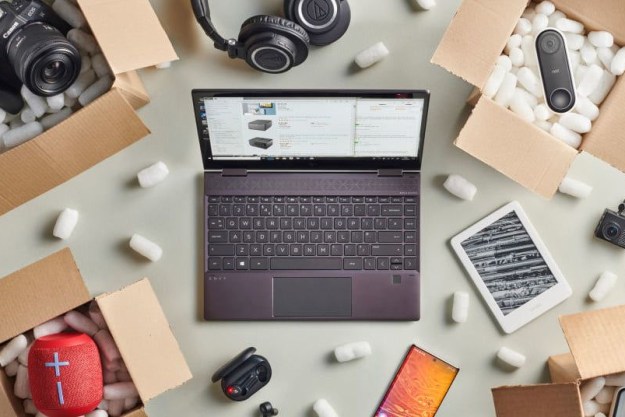Amazon is reportedly in talks with major U.S. mall operator Simon Property Group over a plan to convert vacated department stores into distribution hubs for the online shopping behemoth.
Malls have taken a battering in recent years as more and more customers hop online to shop from the comfort of their own home. The emergence of COVID-19 at the start of 2020 hasn’t helped, either, with stay-at-home orders and general safety concerns prompting even more people to steer clear of brick-and-mortar stores and shop online instead.
The changing retail climate has forced stores big and small to announce closures in recent years, leaving huge amounts of empty space inside once-bustling shopping malls.
Amazon is considering setting up fulfillment centers in some of the sites left empty by the store closures, according to a report in The Wall Street Journal on Sunday, August 9. People familiar with the matter told the publication that Amazon has its eye on sites owned, or previously owned, by department store giants Sears and J.C. Penney, both of which have been closing numerous locations after filing for chapter 11 bankruptcy protection — Sears in 2018 and J.C. Penney in 2020.
As the Journal points out, any deal with Simon Property would align nicely with Amazon’s desire to have more fulfillment centers close to residential areas, helping it to deliver customer orders more quickly.
But the idea may present more of a conundrum for Simon, as while it would fill up empty space in its malls and generate much-needed rent, it would at the same time deprive it of the anchor of a large, big-name store that traditionally helps to attract customers who would then spend money at some of the mall’s smaller stores and eateries. But how might those smaller stores feel if Amazon’s arrival meant the e-commerce giant was able to operate more efficiently in the area, thereby posing an even bigger threat to their own, smaller business?
It’s believed that Amazon has also been in discussions with a number of mall operators regarding the idea of using some empty J.C. Penney locations for its expected grocery store chain (separate from Whole Foods), though it’s not clear if the current talks with Simon are also considering this proposal.
The discussions between Amazon and Simon Property Group are reported to be ongoing, with nothing yet agreed. Digital Trends has reached out to both parties for comment on the content of this latest report and we will update this article when we hear back.
Editors' Recommendations
- Amazon tweaks in-garage delivery option, so now you might have to pay
- Amazon deploys AI to summarize product reviews
- Twitter taps big retailer for launch of new livestream shopping feature
- Amazon says it blocked billions of counterfeit products in 2020
- Amazon’s latest purchase aims to speed up your deliveries


